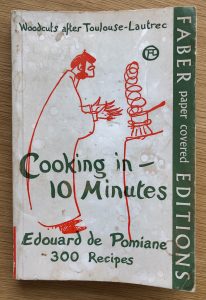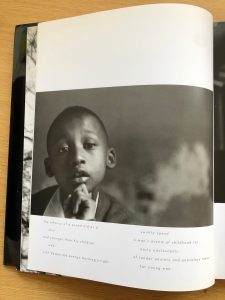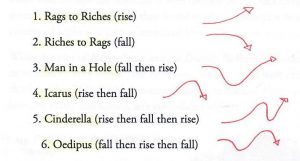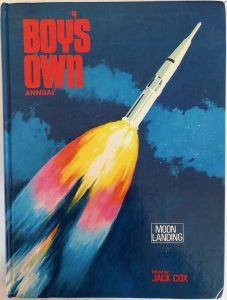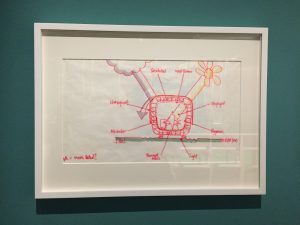I will always remember when…
In the Serpentine Gallery a work of art by Faith Ringgold stopped me in my tracks:
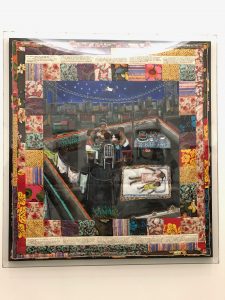
Woman on a Bridge #1 of 5: Tar Beach weaves magic with canvas and quilt, colour and words. These words:
I will always remember when the stars fell down around me and lifted me up above the George Washington Bridge.
I could see our tiny rooftop with Mommy and Daddy and Mr & Mrs Honey our next door neighbors, still playing cards as if nothing was going on, and BeBe, my baby brother, laying real still on the mattress, just like I told him to, his eyes like huge flood-lights tracking me through the sky.
Sleeping on Tar Beach was magical. Laying on the roof in the night with stars and skyscraper buildings all around me made me feel rich, like I owned all that I could see. The bridge was my most prized possession.
Daddy said the George Washington Bride was the longest and most beautiful bridge in the world and that it opened in 1931 on the very day I was born. Daddy worked on the bridge hoisting cables. Since then, I’ve wanted that bridge to be mine.
Now I have claimed it. All I had to do was fly over it for it to be mine forever. I can wear it like a giant diamond necklace, or just fly over it and marvel at its sparkling beauty. I can fly, yes fly. Me, Cassie Louise Lightfoot, only eight years old and in the third grade and I can fly.
That means I am free to go wherever I want to for the rest of my life. Daddy took me to see the Union Building he is working on. He can walk on steel girders high up in the sky and not fall. They call him the cat.
But still he can’t join the Union because Granpa wasn’t a member. Well Daddy is going to own that building cause I am gonna fly over it and give it to him. Then it won’t matter that he’s not in their ole Union or whether he’s Colored or a half breed Indian like they say.
He’ll be rich and won’t have to stand on 24 story high girders and look down. He can look up at his building going up. And Mommy won’t cry all winter when Daddy goes to look for work, and doesn’t come home. And Mommy can laugh and sleep late like Mrs Honey and we can have ice cream every night for dessert.
Next I’m going to fly over the ice cream factory just to make sure we do. Tonight we’re going up to Tar Beach. Mommy is roasting peanuts and frying chicken and Daddy will bring home a watermelon. Mr and Mrs Honey will bring the beer and their old green card table. And then the stars will fall around me and I will fly to the Union Building.
I’ll take BeBe with me. He has threatened to tell Mommy and Daddy if I leave him behind. I have told him it’s very easy, anyone can fly. All you need is somewhere to go that you can’t get to any other way. The next thing you know, you’re flying among the stars.
Personal and universal, imagined and real, timeless and of its time – Tar Beach is quite simply a brilliant story. And happily, it’s one you can buy in book form.
